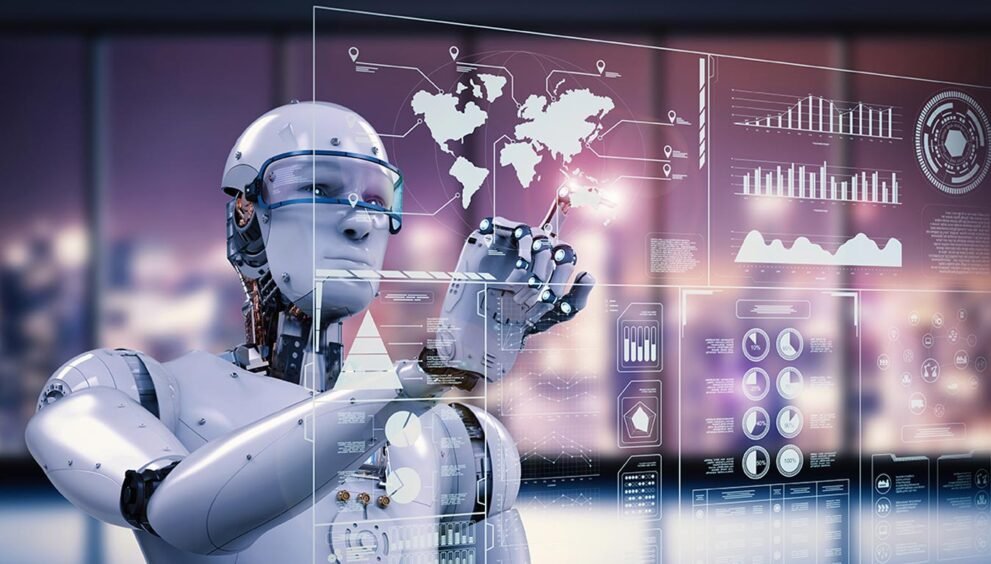Artificial Intelligence & Machine Learning in Legal Tech

Introduction
The legal industry, traditionally known for its reliance on manual processes and exhaustive paperwork, is undergoing a significant transformation. At the forefront of this evolution are Artificial Intelligence (AI) and Machine Learning (ML), technologies reshaping how legal services are delivered. In this article, we will delve into how AI and ML are revolutionizing legal tech, bringing efficiency, accuracy, and innovation to the sector.
Understanding AI and ML in Legal Tech
Artificial Intelligence refers to computer systems that simulate human intelligence, while Machine Learning, a subset of AI, involves the ability of machines to learn from data and improve over time. In the context of legal tech, these technologies are applied to streamline processes, enhance decision-making, and reduce the workload on legal professionals.
Key Applications of AI and ML in Legal Tech
- Document Review and Analysis: Traditionally, legal document review is a labor-intensive task. AI-powered tools can scan and analyze large volumes of documents in a fraction of the time it takes a human. These tools use Natural Language Processing (NLP) to understand and interpret legal language, identifying relevant information and flagging potential issues.
- Predictive Analytics: Machine Learning algorithms can analyze historical case data to predict outcomes of ongoing legal matters. This capability enables lawyers to make informed decisions, develop more effective strategies, and advise clients with a higher degree of accuracy.
- Legal Research: AI-driven legal research tools can sift through vast legal databases swiftly, pulling out pertinent case laws, statutes, and regulations. This not only saves time but also ensures that legal practitioners have access to the most relevant and up-to-date information.
- Contract Management: Managing contracts is a critical aspect of legal operations. AI and ML technologies facilitate the drafting, reviewing, and management of contracts, ensuring compliance and reducing the risk of errors. Automated contract analysis can identify discrepancies and suggest amendments, streamlining the entire contract lifecycle.
- Enhancing Client Services: AI chatbots and virtual assistants are being employed to handle routine client inquiries, providing instant responses and freeing up time for legal professionals to focus on complex tasks. These tools ensure that clients receive timely information, enhancing overall service delivery.
Benefits of AI and ML in Legal Tech
- Increased Efficiency: AI and ML significantly reduce the time required for various legal tasks, allowing professionals to focus on more strategic aspects of their work. This leads to increased productivity and the ability to handle more cases simultaneously.
- Improved Accuracy: Automated systems minimize human error, ensuring that legal documents are meticulously reviewed and that legal research is comprehensive. This accuracy is crucial in a field where precision is paramount.
- Cost Savings: By automating routine tasks, legal firms can reduce operational costs. This efficiency can lead to more affordable services for clients, democratizing access to legal assistance.
- Scalability: AI and ML enable legal firms to scale their operations without proportionately increasing their workforce. This scalability is particularly beneficial for handling large volumes of work in a dynamic legal environment.
You May Also Like: AI-Driven Analytics for Streamlining Data Management in Legal Cases
Challenges and Considerations
While AI and ML offer numerous advantages, their integration into legal tech is not without challenges. Concerns regarding data privacy, ethical considerations, and the need for specialized training to understand and operate these systems must be addressed. Legal professionals need to be equipped with the skills to interact with AI tools effectively while maintaining the highest standards of client confidentiality and ethical practice.
The Future of AI and ML in Legal Tech
The adoption of AI and ML in legal tech is poised to grow, with continuous advancements making these technologies more sophisticated and accessible. Future innovations are likely to include more personalized legal services, increased use of blockchain for secure transactions, and enhanced collaboration tools for remote legal practice.
In conclusion, Artificial Intelligence and Machine Learning are not just transforming legal tech; they are redefining the landscape of the legal industry. By embracing these technologies, legal professionals can deliver superior services, improve client satisfaction, and stay ahead in an increasingly competitive market.

















































































































































































































































































































































































































































































































































